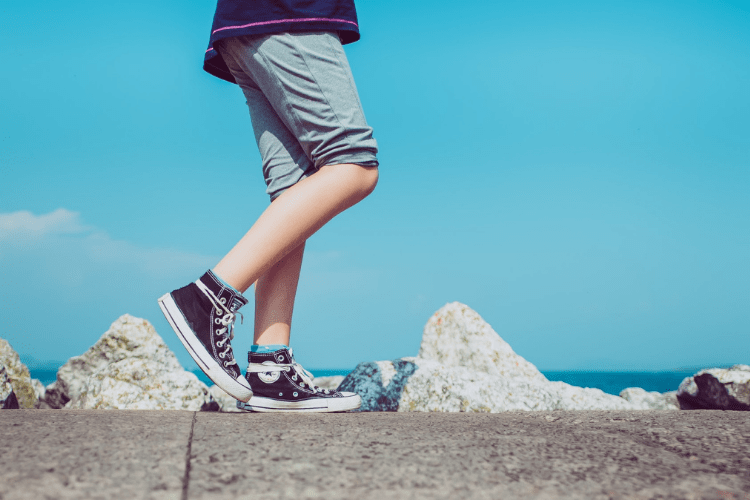The traditional tourism narrative is that travel is a way to “escape” the struggles and stressors of our daily lives. Over the past several months, the tourism industry has worked hard to remold this story into one that centers the planet and local people over travelers’ desires and expectations.
This new story and new mode of operation includes being more aware of both the positive and negative impacts travelers have when they leave home and interact with a new environment and the people who live there. It requires being more mindful of the environmental and socio-cultural challenges in destinations — and if and how tourism exacerbates them.
As people step out into the world and begin making travel plans after a long hiatus, they’ll be stepping out into a changed world. Over the past several months, people have become more sensitive to and aware of the climate crisis, biodiversity loss, and racial injustice.
What they don’t know is if — or how — to put this information to use when they travel again.
It is on the shoulders of those working in the tourism industry to create conditions so that — to the greatest extent possible — travelers are making thoughtful and responsible decisions simply by default.
Beyond that, it is up to tourism professionals to demonstrate what this looks like through their own actions.
Every single day, people committed to creating a better, more equitable, more sustainable model of tourism roll up their sleeves and get to work. They’re designing new itineraries that minimize flying (and, thus, the creation of carbon emissions) and funding rewilding efforts. They are seeking out more diverse storytellers to help provide much-needed context in the destinations where they work. Over the past year, they’ve taken time to really think about how the tourism industry can “build back better.”
Travel is a significant investment, especially right now with COVID tests and extra insurance. And the options for where to go, what to do, and how to travel can often feel overwhelming with all of the choices available to people. No one wants to make a mistake; travel isn’t like a shirt you can return if you buy the wrong size.
So, who do casual travelers look to when navigating the ins and outs of this complicated and pricey purchase?
The people who know the ins and outs of all things travel-related — people working in the tourism industry.
Unfortunately, we live in a world of blurry lines. Our professional work must, to a certain extent, be reflected in our day-to-day actions. This means that travel professionals must follow through on their commitment to a more equitable, safer, and sustainable future through their actions even when they’re off the clock.
Whether they like it or not, people working in tourism are models of responsible behavior when it comes to travel-related decisions and actions. People will make decisions based on what they see travel professionals do. Their expectations about how to act and behave will be shaped by how tourism representatives act and behave.
Those working in travel and tourism are highly influential. This influence matters — especially right now.
Impactful messaging must be consistent and reinforced. Encouraging people to do one thing and then not following through with your own actions causes cognitive dissonance. People may be confused and unsure about what action to take. It can also lead people to believe that an issue or situation isn’t as dire as they were originally led to believe, or that it doesn’t concern them.
No one is going to hit the mark 100% of the time when it comes to responsible and sustainable travel-related action. But there are many things every person should do to ensure the messaging they put out into the world is as impactful as possible.
Embrace transparency.
First and foremost, talk about the challenges within the tourism industry, and why it may be hard to balance professional commitments and beliefs with personal action. Explain your decisions. Be open to talking about your ethical struggles related to “walking the walk” in a carbon-heavy sector. We all must be willing to have hard conversations about these issues, both within the industry and beyond.
Be mindful of flights.
No one is asking you to give up flying. But be more mindful of flight patterns and taking longer trips, if possible. Avoid short-haul flights and take ground transportation instead. Invest in a carbon offsetting or removal program, or make a donation to an environmental organization when you do fly. When possible, have virtual versus in-person meetings.
Model conscious consumerism.
Show mindfulness and appropriate restraint when it comes to consumption in your daily life. Invest in a reusable water bottle, tote bag, etc., and actually use them. Before hopping on the “must have the latest fashion” bandwagon, try to do some research on the supply chain or buy second hand. Generally, just be thoughtful before leaning into unnecessary consumerism.
But be forgiving. We all make mistakes. We all forget our reusable mug from time to time or need to use a plastic straw. Sometimes we get caught in the latest craze and binge order from Amazon. It happens. Acknowledge the situation, reflect on the moment, and move on.
Support your own community.
Your backyard is someone else’s vacation destination. Show care for the land you live on and the people who live in your own neighborhood. Learn about the Indigenous history. Support local businesses. Volunteer for a local environmental organization. Seek out local solutions and changemakers in your community.
You are a powerful word-of-mouth ambassador for people coming to visit. Help visitors seek out the stories and corners of your destination that don’t normally get much attention.



